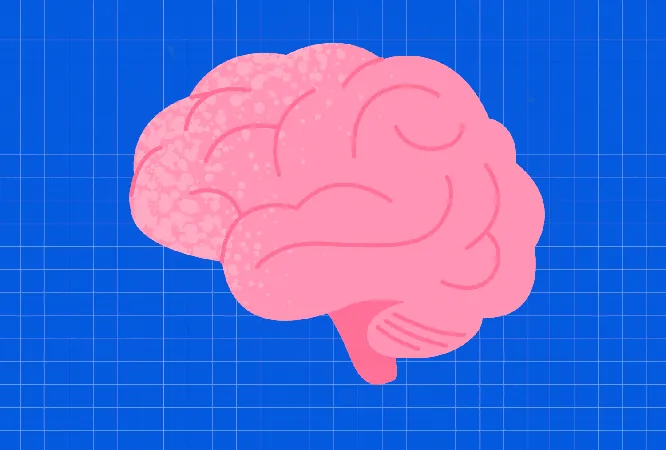
Unlocking Brain Health: 4 Essential Nutrients to Slash Your Dementia Risk!
2025-06-13
Author: Emily
As we gracefully age, a few forgetful moments can become all too familiar: misplacing keys or momentarily blanking on a friend’s name. Yet, when these lapses escalate to forgetting significant details, like loved ones' names, it might signal something much graver.
Dementia, a term encompassing a decline in memory, language, and other cognitive functions, is a pressing concern worldwide. Alzheimer’s disease, in particular, is the most prevalent form of dementia. Alarmingly, the number of dementia cases is projected to double by 2060, with the financial toll for caregivers in the U.S. potentially skyrocketing from $172 billion in 2020 to over $1.5 trillion. These numbers barely scratch the surface of the emotional burdens carried by families and loved ones.
With no cure for dementia currently available, prevention is the best strategy. Researchers at Columbia University recently investigated which nutrients might help lower dementia risk and which could potentially exacerbate it, detailing their findings in the journal "Nutrients." Let's explore their discoveries!
How Was This Study Conducted?
The study utilized data from the Health and Retirement Study (HRS), a long-term U.S. initiative tracking adults aged 50 and above since 1992. In 2013, a focused subset, the Healthcare and Nutrition Study (HCNS), collected comprehensive dietary information.
Participants responded to a food frequency questionnaire detailing their consumption of 163 various foods and drinks over the past year. From these answers, researchers evaluated diet in terms of 101 specific nutrients. Additionally, cognitive abilities were assessed through both direct interviews and responses from close contacts regarding memory and cognitive health.
This expansive study included 6,280 participants, meticulously adjusting for various factors like age, race, sex, BMI, education, smoking, alcohol consumption, and physical activity.
What Did This Study Reveal?
The findings indicate several nutrients correlate with a reduced risk of dementia, particularly these four powerhouses:
1. **Isorhamnetin**: A potent flavonol.
2. **Manganese**: A crucial mineral.
3. **Dietary Fiber**: Vital for digestive health.
4. **Vitamin E**: Both beta-tocopherol and beta-tocotrienol forms.
Interestingly, the study bolstered the hypothesis that high sugar intake elevates dementia risk. However, it presented controversial findings regarding certain milk components—like glycerophosphocholine and vitamin D—that are typically linked to brain health.
Researchers call for further investigation into these findings, suggesting other food components might be influencing the results.
How to Boost Your Diet Today!
Isorhamnetin can be found in vibrant fruits and vegetables such as onions, almonds, berries, and pears, alongside ginkgo biloba, known for its brain-boosting properties.
Manganese is abundant in nuts, legumes, whole grains, and leafy greens, as well as in delicious maple syrup.
As for Vitamin E, load up on nuts, seeds, spinach, and oils from sunflower and safflower.
And let’s not forget fiber—an astonishing nine out of ten Americans fall short in this crucial nutrient. Fiber-packed options include fruits, veggies, and whole grains.
If these nutrients aren’t making it to your plate, it’s time for a dietary overhaul! Swap out unhealthy snacks for nutritious alternatives like nuts and berries or hummus paired with veggies. Want a structured plan? Try the MIND diet, a blend of Mediterranean and DASH diets enriched with brain-friendly foods. Studies suggest this diet could cut your dementia risk by up to 25%! Plus, regular physical activity, quality sleep, and nurturing relationships can further bolster brain health.
The Bottom Line
This pivotal study underscores the importance of key nutrients like Vitamin E, manganese, and isorhamnetin in reducing dementia risk while reinforcing the dangers of excessive sugar. Prioritize obtaining these brain-boosting nutrients through your diet and, if needed, consult a nutrition professional for tailored advice. Your future self will thank you!









 Brasil (PT)
Brasil (PT)
 Canada (EN)
Canada (EN)
 Chile (ES)
Chile (ES)
 Česko (CS)
Česko (CS)
 대한민국 (KO)
대한민국 (KO)
 España (ES)
España (ES)
 France (FR)
France (FR)
 Hong Kong (EN)
Hong Kong (EN)
 Italia (IT)
Italia (IT)
 日本 (JA)
日本 (JA)
 Magyarország (HU)
Magyarország (HU)
 Norge (NO)
Norge (NO)
 Polska (PL)
Polska (PL)
 Schweiz (DE)
Schweiz (DE)
 Singapore (EN)
Singapore (EN)
 Sverige (SV)
Sverige (SV)
 Suomi (FI)
Suomi (FI)
 Türkiye (TR)
Türkiye (TR)
 الإمارات العربية المتحدة (AR)
الإمارات العربية المتحدة (AR)